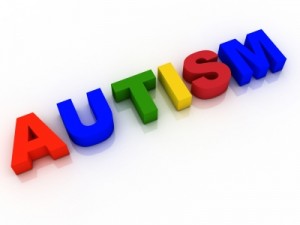Learning a foreign language is arguably one of the best ways to exercise the brain, as the process of learning a new language requires an immense amount of brain activation in various areas of the brain. When the brain hears a word, the brain immediately begins to analyze the sounds to make sense of what is being said. This process of understanding and formulating responses engages different parts of the brain at once. Various executive functions are utilized and developed in the process, including attention, memory, reasoning, organization, and planning. In fact, these parts of the brain are notably larger in bilingual people than in monolinguals, making them able to manage complex situations and switch back and forth between tasks with more ease.
Autism Spectrum Disorder (ASD) categorizes a group of neurodevelopmental disorders that affect about 1 in 68 children, 1 in 42 boys, making it the most rapidly growing developmental disorder in the US today. One of the most notable characteristics of someone affected by autism is difficulty communicating or socializing with others, even in early infancy. Repetitive and limiting behavior is another common, recognizable quality that may point to ASD, although symptoms vary greatly.
In the United States, anxiety disorders affect 40 million adults above the age of 18, making it the most common mental illness. Although less common with children, 6% suffer from anxiety disorders that have serious enough symptoms to require treatment. Evidence continues to support the interconnectedness of the mind and body. Therefore, as mentally debilitating as anxiety can be, it can take a serious physical toll on the body as well.
Everyone knows the feelings of tossing and turning at night, not being able to sleep, but what happens when this frustrating experience repeats every night? Getting through an average day becomes nearly impossible due to an extreme increase in stress from not getting the proper rest a person needs. Increased irritability and overall sleepiness throughout the day also trouble a person who has not been able to sleep well. Work and/or school become even more challenging because the ability to focus is so heavily dependent on a good night’s rest. Insomnia describes a sleep disorder where people either have trouble falling asleep or trouble staying asleep throughout the night, leaving people exhausted upon waking and often throughout the rest of the day.
It’s finally happening! The snow in Massachusetts is starting to melt and the beauty of spring is beginning to shine. April showers will soon bring May flowers, and although everyone is looking forward to the beautiful flowers blooming, allergies inevitably will become a concern for many people. Although there are medications to fight allergies, many of them come with unwanted side effects such as extreme fatigue and dehydration, making it difficult to get through a normal day. Luckily, there are many natural remedies to help reduce allergic reactions that benefit the body in many ways!









